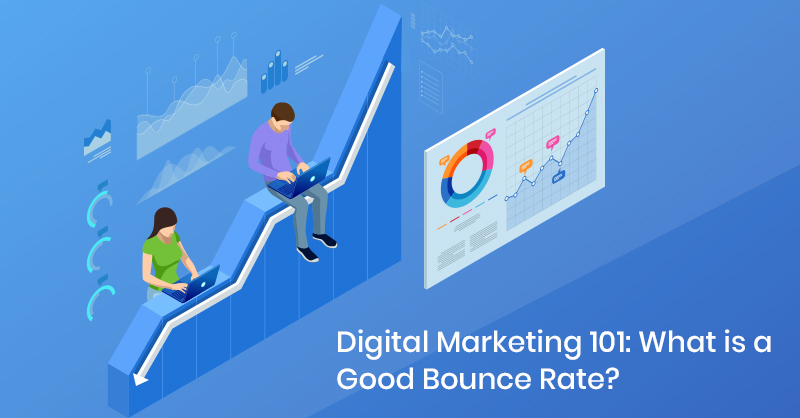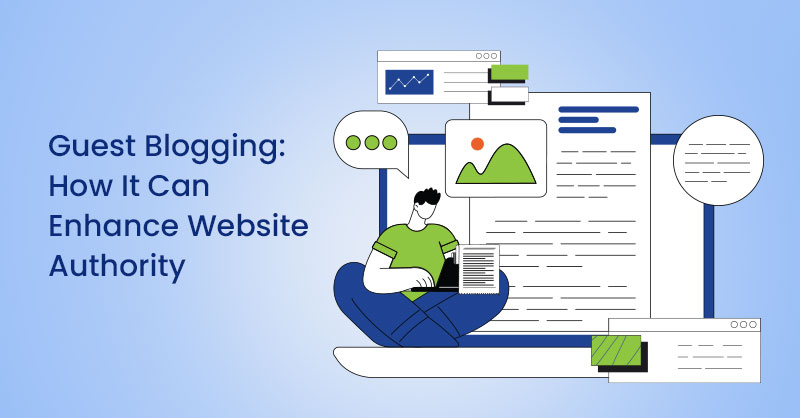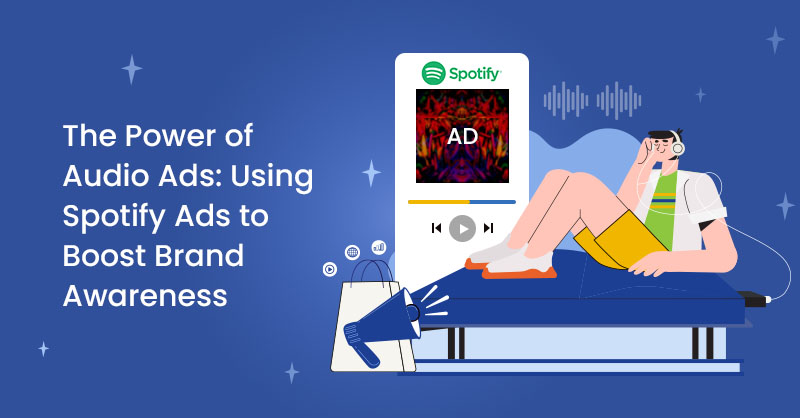If reducing your bounce rate is at the bottom of your list of priorities, it’s time to reprioritize.
The bottom line is that your website’s bounce rate matters, not just for user experience but for many aspects of your digital marketing campaign.
In this article, we’ll go over why bounce rate is important, why you should pay more attention to it, and why having a low rate will positively impact your business.
After all, you may not be an expert in digital marketing, let alone bounce rate. Nevertheless, at TechWyse, we’ve had decades of experience lowering bounce rates for a variety of clients, and we’ll go over how to achieve this shortly.
But, before we dive into how to lower your bounce rate, let’s start with the basics.
What is bounce rate?
If you’re new to this term or just want a refresh, keep reading.
Bounce rate is a measurement that shows the percentage of website visitors who only view one page and then leave without doing anything on that page. They don’t click on links on the page like a “read more” or any other internal ones. In other words, their visit to your website ends after only being on one page. You can view this metric on Google Analytics and fully see how many people leave your page right away.
In addition, digital marketers consider any bounce rate of over 50% as high. Anything over 70% is very high and may even be the sole reason for a low conversion rate.
How is bounce rate calculated?
To calculate your webpage’s exact bounce rate, Google Analytics takes single-page sessions and divides it by all sessions. In simpler terms, it takes note of the amount of sessions where a visitor only looked at a single page and divides that by the rest of the sessions.
The Relationship Between Bounce Rate & SEO
How does your bounce rate affect your search engine optimization efforts? The answer is no one really knows for sure. In fact, digital marketers have been debating this topic for years and still have no real confirmation from Google.
So while bounce rate may not affect your rankings directly, knowing what it is could help you understand other ranking factors like site speed, content quality, mobile-friendliness, user experience, and more.
For example, if your bounce rate is high, it may be because your site speed is too slow. And, if your site speed is too slow, you may suffer from a drop in rankings. Another example would be having a high bounce rate because your content is of low quality and irrelevant to the keywords users are searching for. This would cause that page’s ranking to decrease as well.
Overall, while it’s unsure if Google’s algorithm uses bounce rates as a metric, this percentage still matters in the bigger picture.
What causes a high bounce rate?
Let’s move on to why you might have a high bounce rate. If you or your marketing team are logging into Google Analytics and noticing high bounce rates for a number of your pages, there are several reasons for this.
Here are five of the most common:
- The content on your page is low quality
- The content on your page is irrelevant to your audience
- The information or answers to their questions are not on the page
- Your website’s mobile and desktop page speed is slow
- User experience and UX design is poor
What is a good bounce rate?
Now that you know what causes a high bounce rate, we can move on to understanding what the ideal bounce rate is. Well, it’s obvious that 0% would be the best bounce rate possible; however, this result would be very unlikely no matter how great your page quality is.
That being the case, a good bounce rate falls in the 20-40 range, while the 41-55 range is where most websites are at. If you see higher numbers than this on your Google Analytics account, don’t be alarmed. We’ll give you some tips on how to improve your bounce rate shortly.
The Importance of a Good Bounce Rate
It’s clear that digital marketers are constantly trying to lower bounce rates, but it’s not so clear why. For this reason, we need to understand why a good bounce rate is so desirable.
To put it briefly, a high bounce rate is very detrimental to your website and your business. With bounce rates in the 70s, 80s, and even 90s, you’re going to see fewer conversions. In other words, the fewer users who stay on your page, the fewer people who are going to buy your product or service.
In addition, if you’re suffering from all of the factors that cause a high bounce rate, you will not get the leads you need to make the profit you desire. Overall, your business depends on online lead generation, and online lead generation depends on a low bounce rate.
How to Improve Your Bounce Rate
Now, let's address why you’re really here. How do you reduce your bounce rate to start seeing the conversions you desire?
Below are the quickest ways to lower your bounce rate.
Improve Your Site Speed
The easiest way to tell if your site speed is too slow, other than manually testing it, is to use Google’s PageSpeed Insights tool. Once you find out what your page speed is, you can take measures to optimize it.
It’s important to know that most of our recommendations are technical and you may need the assistance of an agency to implement them:
- Optimize and compress all of your images
- Minimize website redirects
- Minify and compress CSS, HTML & Javascript code
- Move to a better web host
- Allow for browser caching
Set External Links to Open in a New Tab
If you’re familiar with SEO, you probably already know that having external links on your pages is necessary. However, one of the biggest errors you can make with external links is not programming them to open in a new tab. Without this in place, users can easily navigate away from your page and onto another website’s page, which will increase your bounce rate.
Make Your Content Readable
Another thing that can frustrate website visitors and force them to navigate away from your page is to publish difficult-to-read text. If your content is just blocks of text, you can do a few things to improve this. Ensure to include headings, subheadings, bullets, short sentences, and short paragraphs in your content. There are a few different tools like Yoast that you can use to measure your page’s readability score.
Ensure Your Content is Relevant
As said earlier, one of the biggest reasons for a high bounce rate is having content that doesn’t match with what the user is looking for. Check your meta tags and keywords to see if they line up with your text and images. Overall, if a user comes to your page, and the content doesn’t relate to the keyword they searched for on Google, they will leave quickly.
Get in Full Control of Your Bounce Rate with TechWyse
After reading this article, you should be fully aware of how important it is to have a low bounce rate for your website and your business. After all, bounce rates affect almost every other digital marketing metric and strategy out there.
As a result, you’re going to want to take action as soon as possible to improve your bounce rate. The faster you address your high bounce rate, the faster you’ll start seeing results.
Now, we understand all of this can be a bit overwhelming. So, if you’re feeling unsure about what to do next, don’t worry. Our digital marketing experts at TechWyse have the tools and minds to get you the results you desire. Contact us today to start taking full advantage of a low bounce rate!







on
Great post, Darren! Looking forward to the coming weeks’ posts on this topic. I have started a blog this year that is very dear to my heart all because of ProBlogger and all you do for us! Thank you so much!!